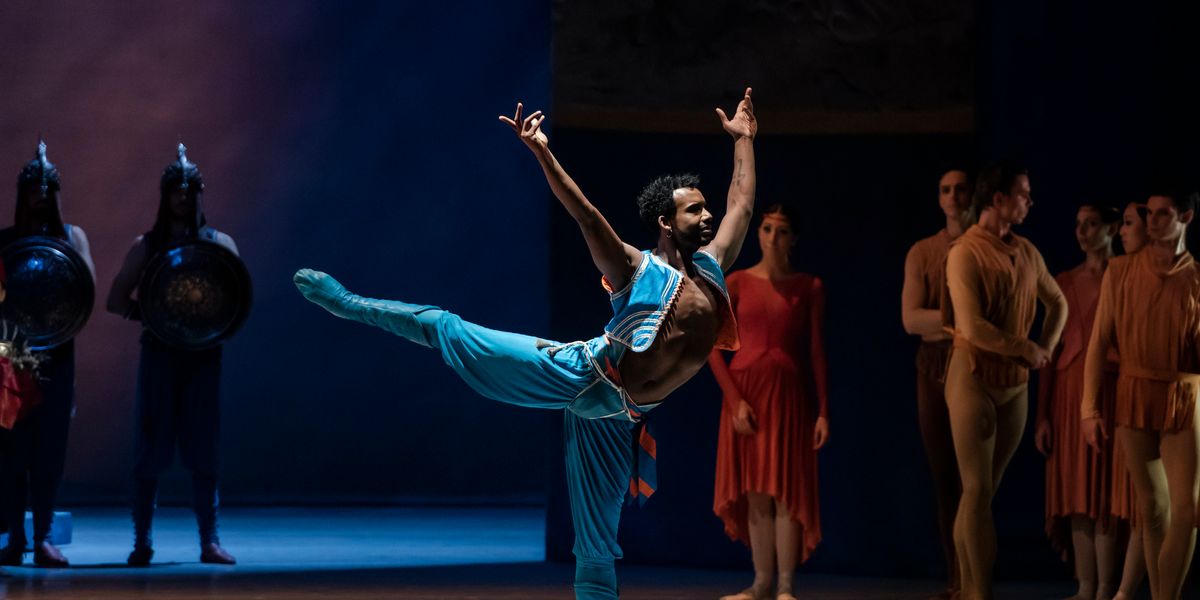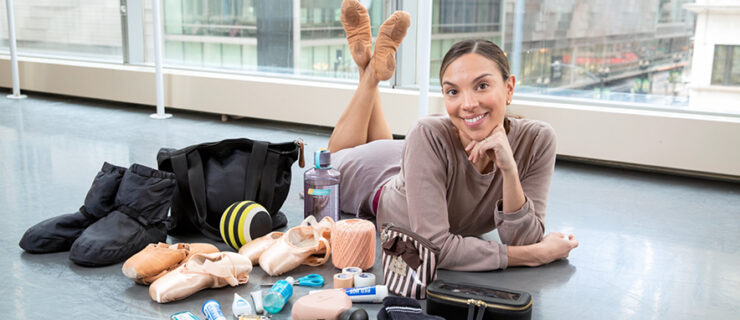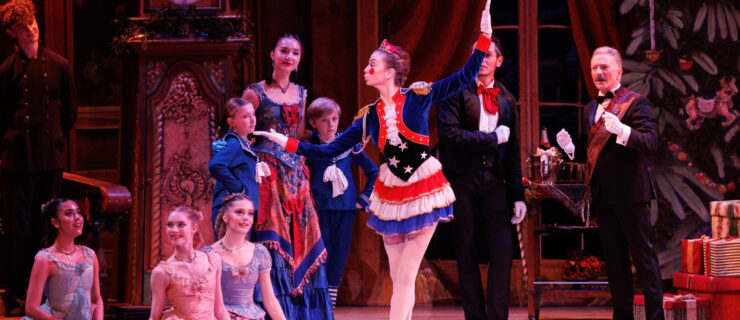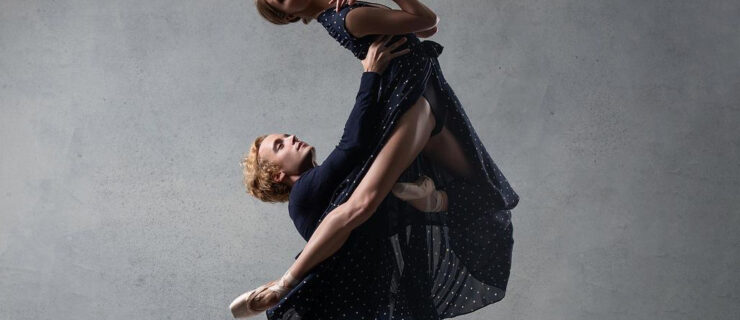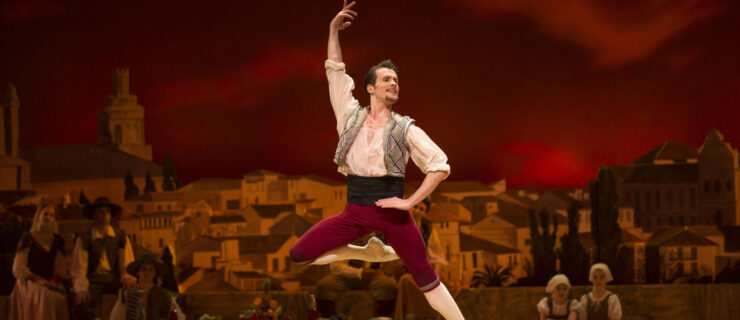Osiel Gouneo on His Cuban Roots, His Favorite Roles and His Grandfather's Powerful Life Lesson
In Pointe‘s Fall 2020 issue, Bayerisches Staatsballett principal Osiel Guneo talked to us about his career, life as a new dad and what he misses most about his home country of Cuba.
What has been the biggest adjustment to living in Europe compared to Cuba?
I never realized that cold weather could have such a negative effect on me! But Europe’s artistic side has been so influential for my career. Caring ballet masters, new choreography and good friends have all been really positive aspects of my time here.
Which accomplishment are you most proud of?
People label artists. A certain painter makes nice landscapes, or a boxer is known for his defense. I’m proud to have reached a level where I can show different sides of myself. Carlos Acosta paved the way in Cuba. He showed that ballet is more than tricks. I am proud to continue that approach.
 Gouneo and Laurretta Summerscales n John Cranko’s Onegin. Photo by Serghei Gherciu, Courtesy Bayerisches Staatsballett
Gouneo and Laurretta Summerscales n John Cranko’s Onegin. Photo by Serghei Gherciu, Courtesy Bayerisches Staatsballett
What part of your Cuban culture do you miss most?
I miss the Cuban energy. In Cuba, there is a very strong link between family and music. I have memories of the whole family together, eating and dancing. After work, no matter how tired I was, there was always time for friends—a game of dominos and a little rum. Now, I go home and wind down, send emails and watch TV.
You became a father in March. What has parenthood been like?
My baby was born during the coronavirus pandemic. It was actually perfect timing, because we’ve been able to spend so much time together. We’re adjusting to the new schedule, fighting lack of sleep and figuring it out as a family.
 Gouneo as the title role in Yuri Grigorovich’s Spartacus. Serghei Gherciu, Courtesy Bayerisches Staatsballett
Gouneo as the title role in Yuri Grigorovich’s Spartacus. Serghei Gherciu, Courtesy Bayerisches Staatsballett
What quality do you admire most in your colleagues?
I value honesty above anything. I want the truth so that I can keep growing. I’m so grateful when my friends show me that respect.
What roles have taught you the most about yourself as a dancer?
Certain roles have highlighted different phases in my life. I identified with Spartacus when I was younger, and then with Des Grieux in Manon, who gives everything for love. Ali, Basilio, Acteon and Solor were all roles that opened doors for me.
What lesson has served you best?
My grandfather taught me to have self-respect and pride. He said that as a Black man I had a burden to bear, and that I should never let anyone put a foot on me. In Cuba, one of my dance teachers used to put me down all the time, pushing me way beyond my limits. Because of my grandfather’s advice, I was able to use the teacher’s criticism to work that much harder. Now I know that good values and pride can be turned into love.
How do you want to be remembered?
I want to be thought of as a complete artist, and as a person who dared to step forward. I recently got to try acting. It was fun to see how far I could go with spoken word—to be dramatic without mimicking. It felt more comfortable, somehow. That’s the sort of challenge I’ve always been drawn to: risks that take my career to the next level. I’ll always be hungry to be better. I’ve learned that I can be content with my life, but I’ll never be satisfied.
